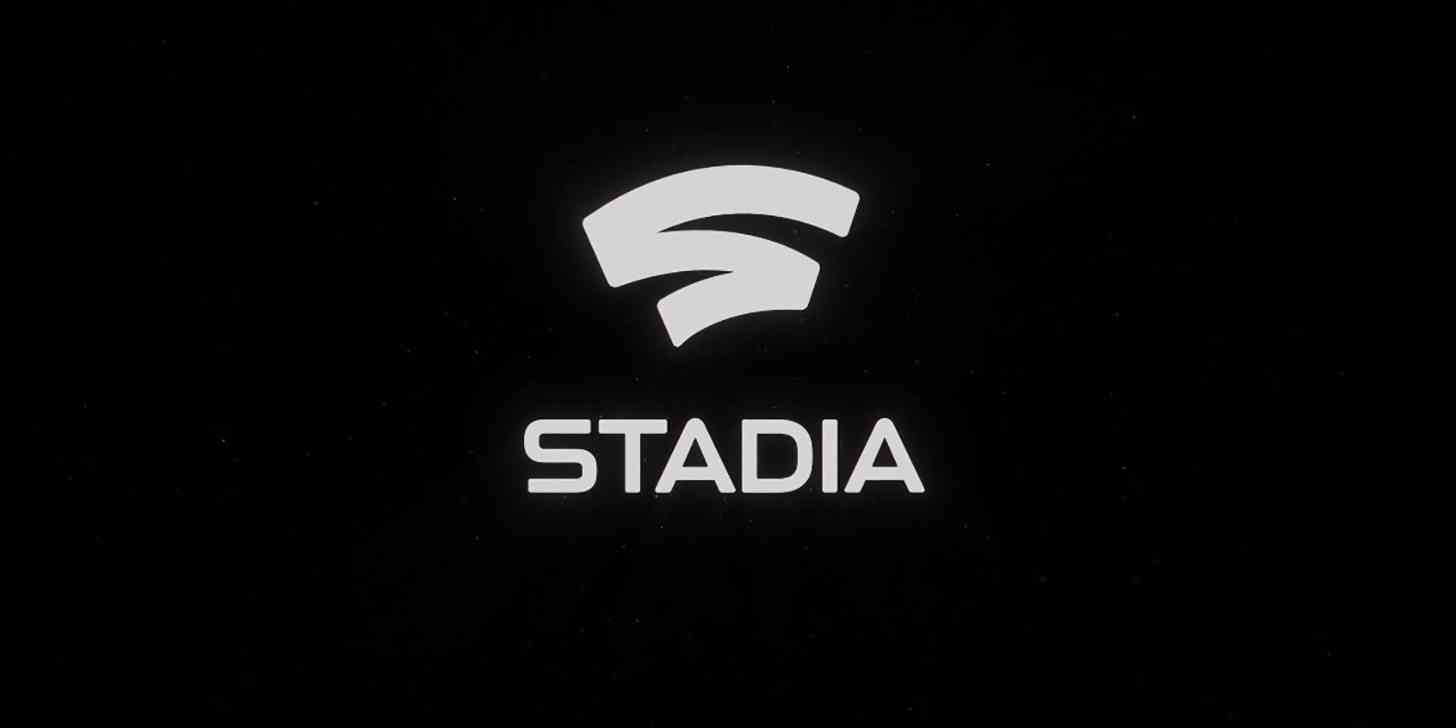
After teasing last week that it would show us its "vision for the future of gaming" at GDC 2019, Google today revealed its big gaming initiative.
Stadia is Google's new game streaming service. With Stadia, Google wants to help you play games wherever you are. The company explains that you can watch a YouTube trailer for a game, click the "Play" button, and then start playing the game in as little as five seconds.
Google says that Stadia will be supported on desktops, laptops, TVs, tablets, and phones at launch. During its demo, Stadia was demonstrated running on devices like a Pixelbook, Pixel Slate, Pixel 3 XL, and on a TV using a Chromecast Ultra.
Stadia users can play with their existing USB controllers or mouse/keyboard setup, but Google is also launching a special Stadia controller to go with its game streaming service. With a d-pad, dual analog sticks, and triggers, the Stadia controller looks like a pretty standard gaming controller. Google did add two special buttons, though: a Capture button to let you save and share to YouTube and a Google Assistant button that'll activate a microphone for when you need help with your gaming session.
Another special feature of the Stadia controller is that it'll connect to Google's data center over Wi-Fi, identify which screen or device you're on, and link the game session in the cloud. This should help if you decide to move your gaming session from one device to another.
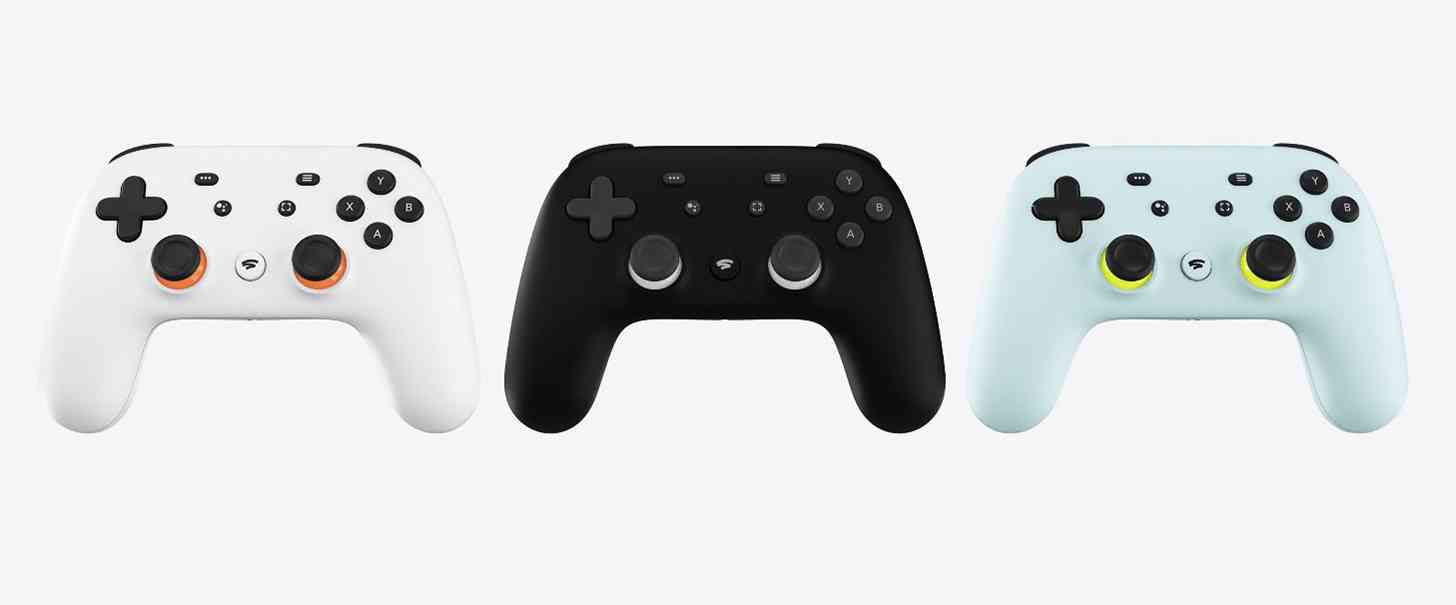
Stadia itself will have some special features of its own beyond just letting you instantly starting playing a game. State Share will allow you to share a playable moment with others so that they can experience what you experienced or try to top your high score. This shareable instance will include your world state, inventory, and even your player's position.
Also notable is Crowd Play. With this feature, you'll be able to watch a streamer playing a game on YouTube and instantly jump in a queue to play with that person. If the streamer has this feature enabled, you'll be able to press a "Join this game" button to get in line and then jump right in with that person.
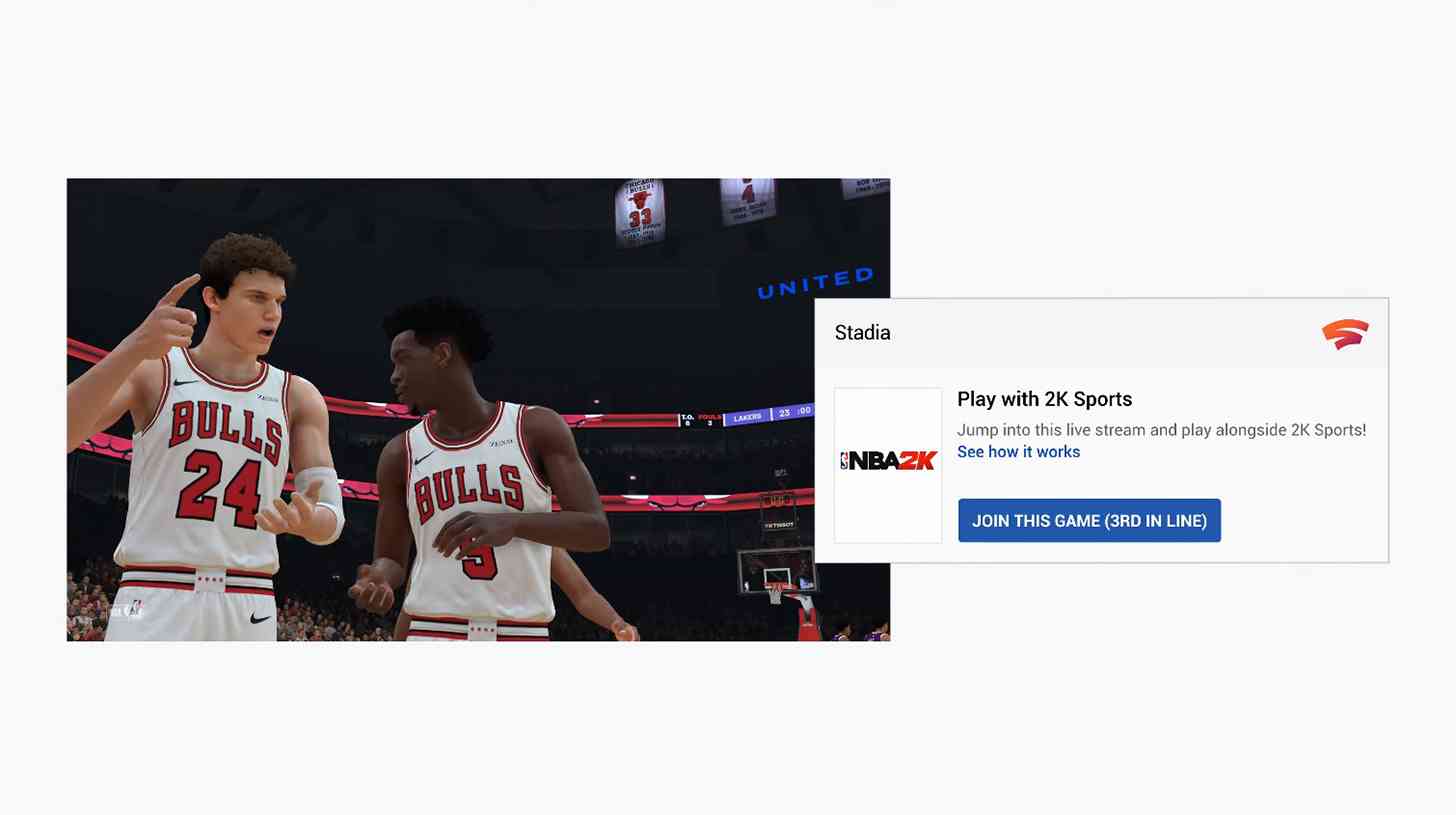
Remember that Google Assistant button on the controller? If you find yourself stuck in a game, you'll be able to press it to get help. Just ask the Assistant for help and it'll pop up a YouTube video to show you how to get past that part of the level, all without you having to move to a different computer or web browser.
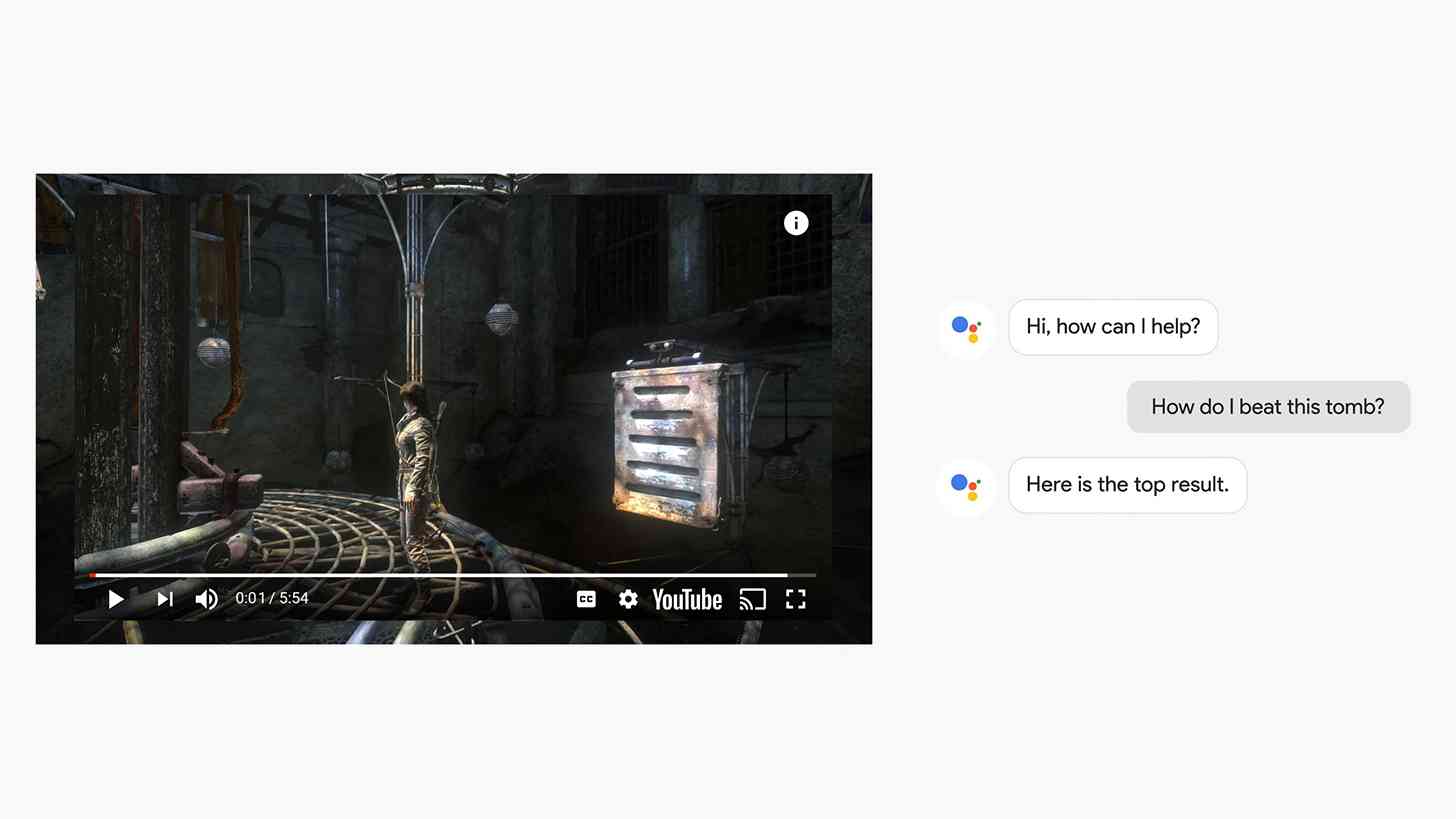
Google touts that Stadia will support cross-platform multiplayer if enabled by a game's developers, and support for carrying over game saves and progress will be available, too. Stadia will also offer parental controls that'll help you decide who your child plays with, what games they play, and when they can play.
At launch, Google Stadia will support features like 4K, HDR, surround sound, and 60 frames per second gaming. Google plans to boost those features in the future, upping Stadia support to 8K resolution and 120fps gaming.
If you're interested in the nitty-gritty of Stadia, Google says that it's partnered with AMD on a custom GPU for its service. Each Stadia instance includes a custom x86 processor running at 2.7GHz and 16GB of RAM, and it's running Linux with the Vulkan graphics API. A Stadia instance can output 10.7 teraflops of power, while a PS4 Pro offers 4.2 GPU teraflops and an Xbox One X can output 6.0 GPU teraflops.
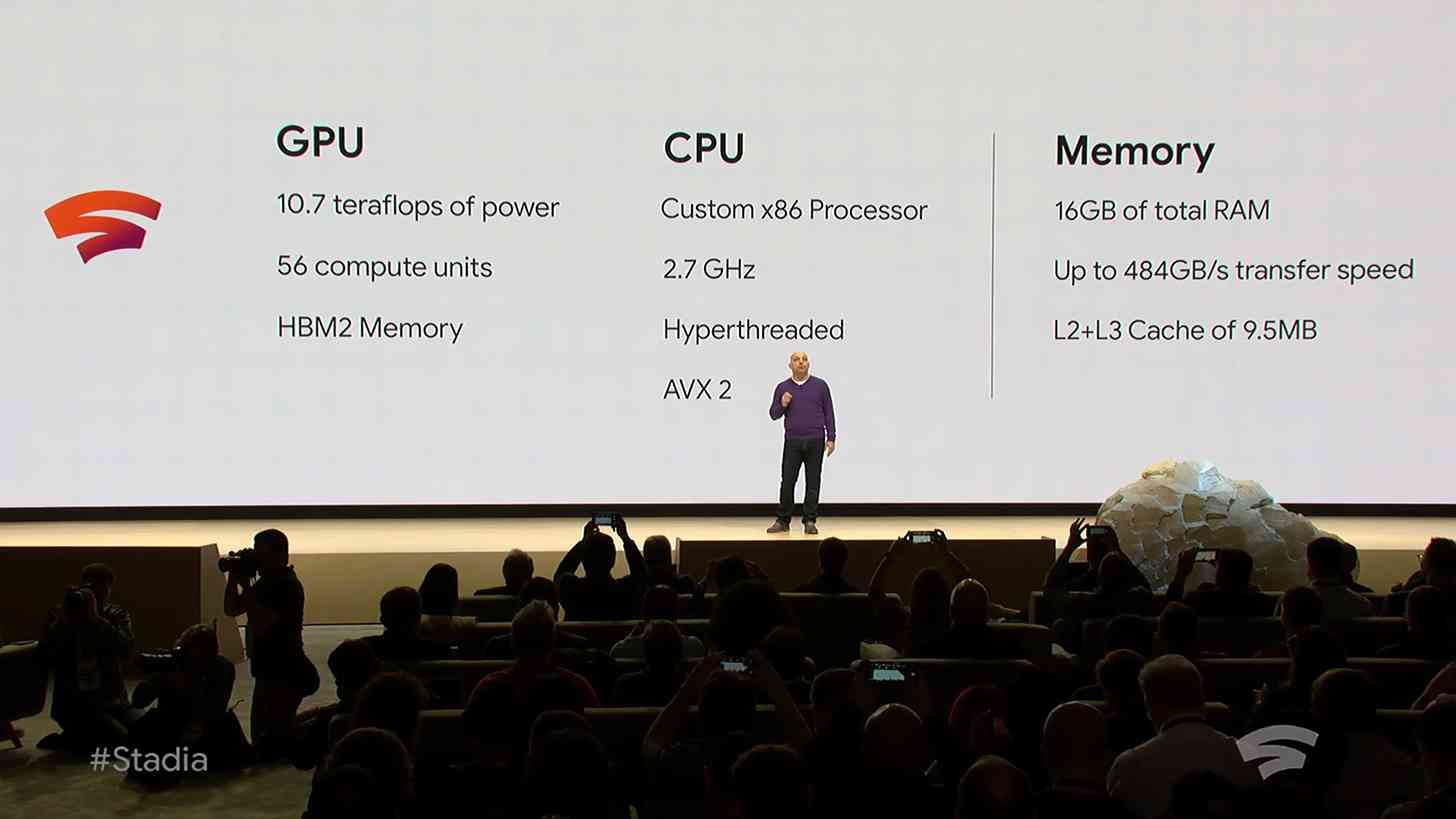
When it comes to the games themselves, Google didn't share much info about which titles will be available on Stadia. We do know that Doom Eternal will be playable at up to 4K with HDR and 60fps. Also of note is that Google is starting up its own first-party game studio called Stadia Games and Entertainment, led by gaming industry veteran Jade Raymond.
Stadia will launch in 2019 and will arrive first in the U.S., Canada, U.K., and most of Europe. No pricing details are available.
So there's Stadia. It's a pretty major new initiative from Google, and features like being able to instantly starting playing a game after watching a YouTube trailer and the ability to play on just about any device sound pretty great. However, we'll have to wait to see just how all of those features work when Stadia is actually available to the public.
What do you think of Stadia? Are you excited for Google's big gaming effort?